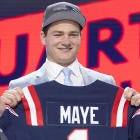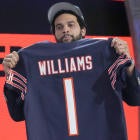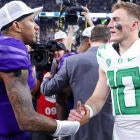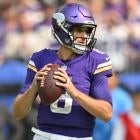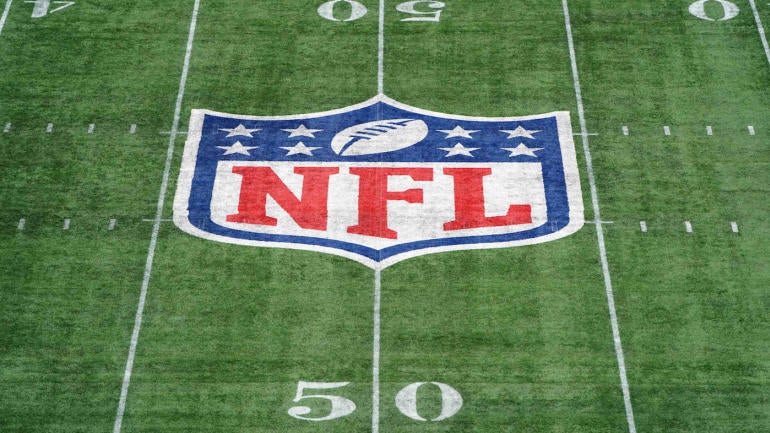
When it comes to the NFL's gambling policy, it seems that some players are still confused about what they're allowed to do and what they're not allowed to do.
After being handed a six-game suspension this year, Lions receiver Jameson Williams even admitted that he "wasn't aware" of how the gambling policy works. Williams was one of five players to get hit with a major suspension back in April.
Williams isn't the only player who appears to be confused about the league's gambling policy. The Athletic recently interviewed five anonymous NFL players and none of them seemed to have a full understanding of the league's gambling policy.
One player was unaware that you couldn't place bets from a team facility while another player thought the policy meant that you "couldn't bet on anything during the NFL season."
One veteran, who's been in the NFL for a decade, admitted that he flat out didn't know what the policy was on gambling.
"I don't even know what the rule is, or when the rule changed or the fine print on what you can or can't gamble on," the veteran said.
The NFL actually has a different gambling policy for players and league personnel. On the players' end, here's a look at the three main rules they need to follow if they don't want to get in trouble:
1. No betting on the NFL. "All NFL Personnel are prohibited from placing, soliciting, or facilitating any bet, whether directly or through a third party, on any NFL game, practice or other event (e.g., Draft or Combine). This includes betting on game outcome, statistics, score, performance of any individual participant, 'futures,' or any other kind of 'proposition bet' in any way related to the NFL (regardless of whether such bet involves actual on-field play) (e.g., prop bets related to Gatorade color, pre- or post-game events, halftime show, off-field player conduct or outcomes, etc.)"
Breakdown -- This rule is pretty clear and it applies to both players and league personnel: No one is allowed to gamble on any NFL-related events.
2. Betting on other sports. "All NFL Personnel other than players are further prohibited from placing, soliciting, or facilitating bets on any other professional (e.g., NBA, MLB, NHL, PGA, USTA, MLS), college (e.g., NCAA basketball), international (e.g., World Baseball Classic, World Cup), or amateur (e.g., Olympic, AAU) sports competition, tournament or event."
Breakdown: This rule is slightly more confusing. NFL players ARE allowed to bet on other sports, but other league personnel are NOT allowed to bet on other sports. League personnel can only partake in non-sports gambling and they have to do it on their own personal time. NFL personnel also aren't allowed to visit any sportsbooks while the NFL season is going on.
3. No gambling in the work place. This is the rule that Williams allegedly broke. Here's the rule from the league, "NFL Personnel shall not engage in any form of Gambling in any club or League facility or venue (e.g., practice facility, stadium, team hotel, Draft or other League or club event); on any League or club charter or other transport; while traveling on club or League business; or while making an endorsement or promotional appearance."
Breakdown: Although players ARE allowed to gamble on other sports, they ARE NOT allowed to make bets while at a team facility or venue.
The NFL's gambling policy also includes a few other obvious rules for players: Don't try to fix a game, always give your best effort and do not give out any inside information. NFL players and personnel are also banned from making illegal bets. This basically means that if gambling is still illegal in your state, you can't call your neighborhood bookie to make a bet.
One other notable part of the policy revolves around fantasy football. NFL personnel are allowed to participate, but they can't accept a prize of more than $250. Also, no one is allowed to make DFS bets on the NFL (daily fantasy).
The NFL seems at least slightly aware that some players don't fully understand the policy, which is likely why Tom Brady was recently brought in to help educate players about the perils of gambling.














